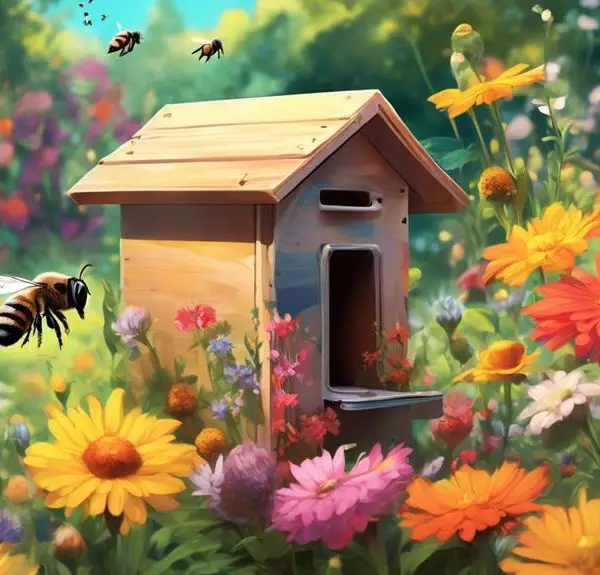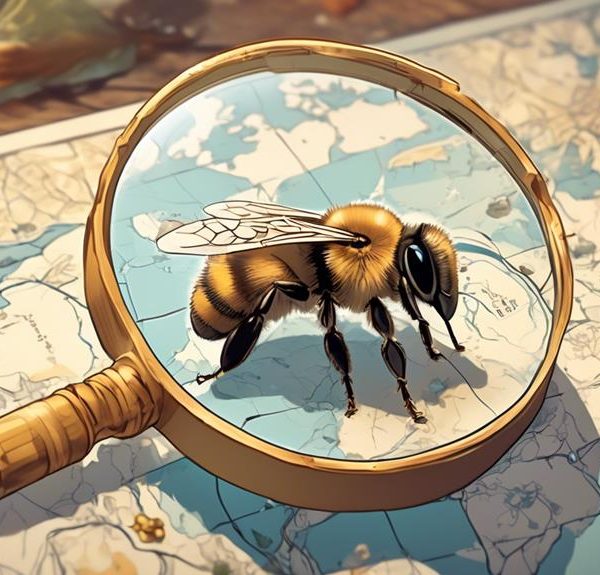Learn why mason bees, despite not producing honey, play a crucial role in pollination and sustaining our ecosystem.
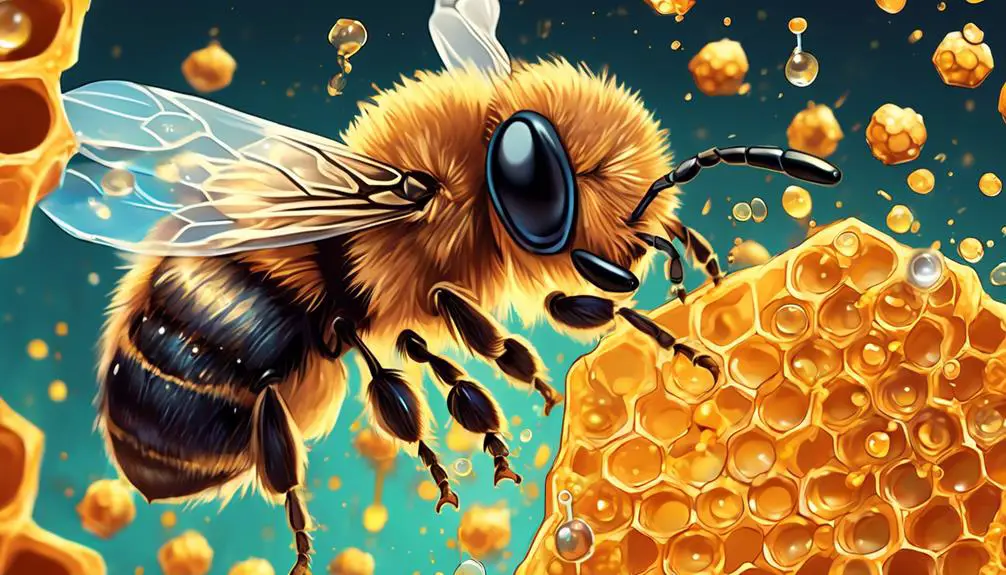
Can Mason Bees Make Honey?
You're most likely familiar with honey bees, but have you ever heard of mason bees? These solitary creatures are a marvel of the insect world, but they're often overshadowed by their honey-producing counterparts.
Unlike honey bees, mason bees do not live in hives, nor do they produce honey. You might be thinking, 'If they don't produce honey, what's their purpose?'
Well, the answer to that question involves a fascinating exploration into the world of bees, pollination, and our ecosystem, which may just change your perspective on these little-known insects.
Key Takeaways
- Mason bees do not produce honey due to their solitary nature and lack of specialized wax-producing glands.
- Mason bees focus on pollination and are highly efficient at transferring pollen.
- They play a vital role in the ecosystem by pollinating a wide range of flowers and supporting the propagation of many plants.
- Mason bees are essential for maintaining the delicate balance of the food chain and promoting biodiversity.
Understanding Mason Bees
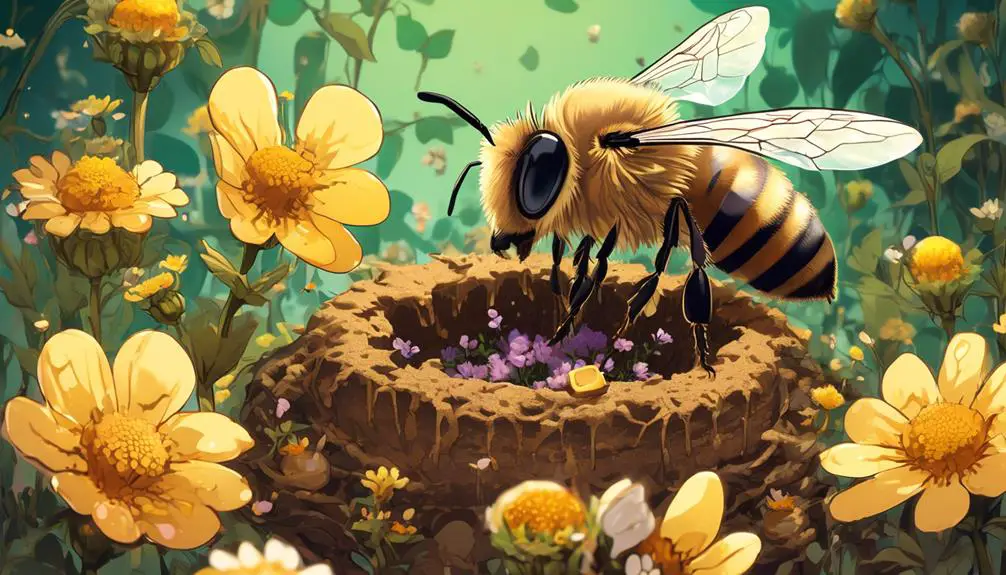
Diving into the world of Mason bees, you'll find that these hardworking pollinators, although less known than their honeybee counterparts, play a crucial role in our ecosystem. They're solitary insects, meaning they don't live in colonies like honeybees or bumblebees. Instead, each female constructs and provisions her own nest. You might be wondering about their peculiar name. Well, it's derived from their nesting behavior – these bees use mud or masonry products to close off their nesting cavities.
You'll also find that Mason bees are more efficient pollinators than honeybees. Here's why – they carry pollen on their abdomen, which allows for better pollen transfer as they move from flower to flower. Additionally, they're not picky eaters. These bees will pollinate a wide range of flowers, not just a select few. This adaptability makes them valuable for maintaining biodiversity.
Lastly, it's important to note that Mason bees are harmless. They're non-aggressive and will only sting if they feel threatened. So, next time you spot one, don't panic! They're just busy doing their bit for our planet.
Differences Between Mason and Honey Bees
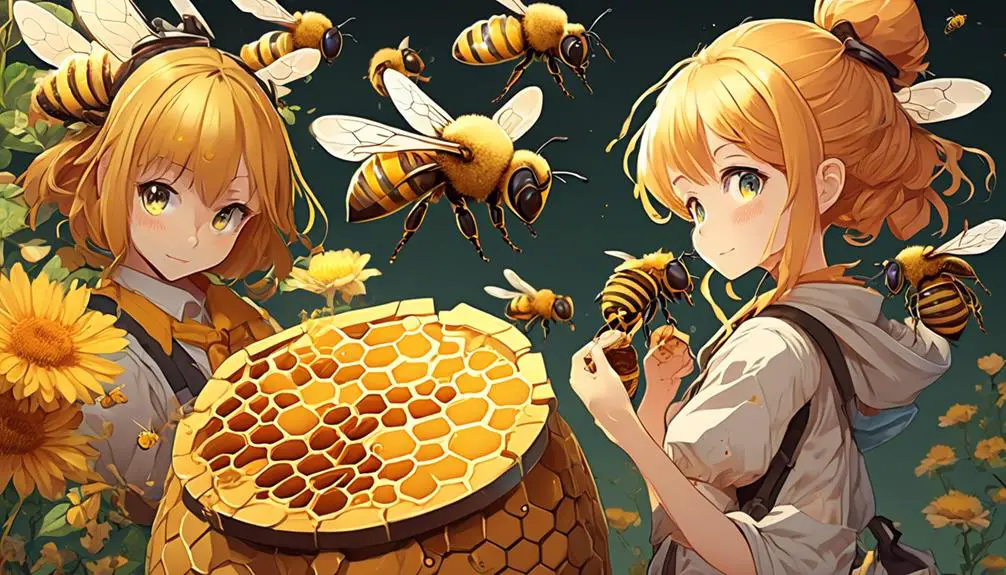
While you may be familiar with the industrious honeybee, understanding the differences between them and Mason bees can shed light on the unique roles each play in our ecosystem. You'll find that Mason bees are solitary creatures. They don't live in colonies or produce honey like their honeybee counterparts. Instead, they focus their energy on pollination, excelling at this task.
Honeybees, on the other hand, are social insects living in well-organized colonies. They produce honey and beeswax, serving as essential pollinators as well. Let's delve deeper into the disparities by considering the table below:
Characteristics | Mason Bees | Honey Bees |
|---|---|---|
Social Structure | Solitary | Colonial |
Pollination | Highly Efficient | Efficient |
Honey Production | No | Yes |
Lifespan | Shorter (few weeks) | Longer (few months to a year) |
From the table, it's clear that while both bees contribute significantly to pollination, their lifestyles and behaviors vary. Knowing these differences, you can appreciate the intricate balances in our ecosystem, with each species playing a unique, essential role.
The Life Cycle of Mason Bees
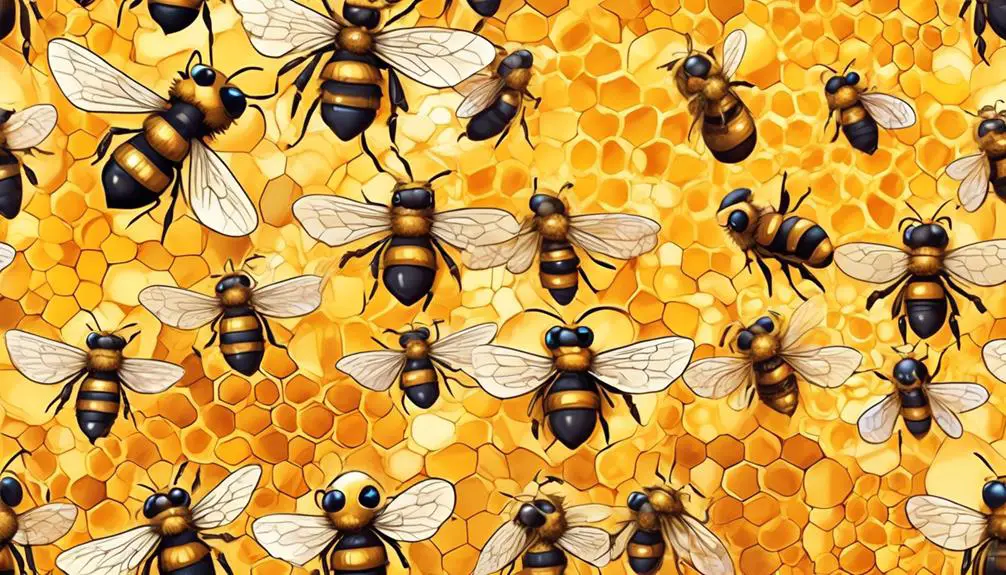
To truly understand Mason bees, it's crucial to explore their life cycle, which is a fascinating journey from egg to adulthood. Unlike honey bees that live in colonies, Mason bees are solitary creatures. Their life cycle begins when the female Mason bee lays her eggs in a tube-like nest, often in hollow stems or pre-existing holes in wood. She'll deposit an egg, along with a food supply of pollen and nectar, then seal off the chamber with mud. This is where they get their name – they're masons, working with mud.
Once the egg hatches, the larvae eat the stored food until they're ready to pupate. They transform into pupae within a cocoon and, during this metamorphosis, develop into adult bees. This process typically takes about 10 months.
In the spring, the adult bees emerge from their cocoons, ready to mate and start the cycle all over again. The males tend to emerge first, waiting for the females so they can mate. After mating, the males die, and the females begin the process of laying eggs. It's a cycle of life that's both efficient and beautiful.
Why Mason Bees Don't Produce Honey
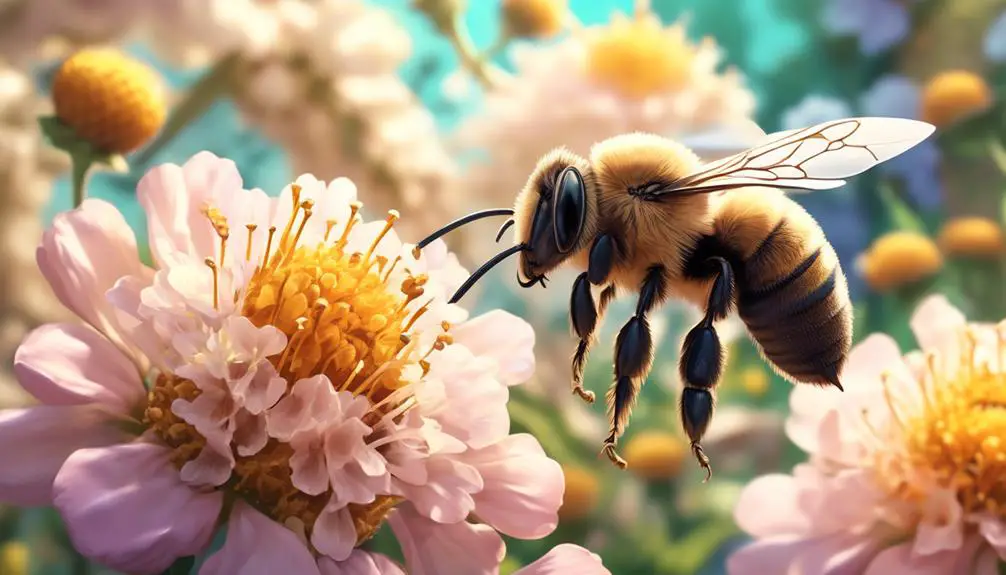
Despite their industrious nature and shared role in pollination with their honey bee cousins, you won't find mason bees producing honey. Why is this, you may wonder? Well, it boils down to differences in biology and lifestyle.
To begin with, mason bees are solitary creatures. Unlike honey bees that live in sizable colonies and produce honey as a food source for the whole hive, mason bees lead solitary lives. Each female builds and provisions her own nest without the help of others.
Their diet also plays a role. Mason bees feed their offspring pollen and nectar directly, without converting it to honey. Lastly, mason bees lack the specialized wax-producing glands that honey bees have, which are essential for honey production and storage.
Here's a comparison:
Mason Bees | Honey Bees | |
|---|---|---|
Social Structure | Solitary | Colonial |
Diet for Offspring | Direct pollen and nectar | Honey |
Wax Glands | Absent | Present |
The Role of Mason Bees in the Ecosystem
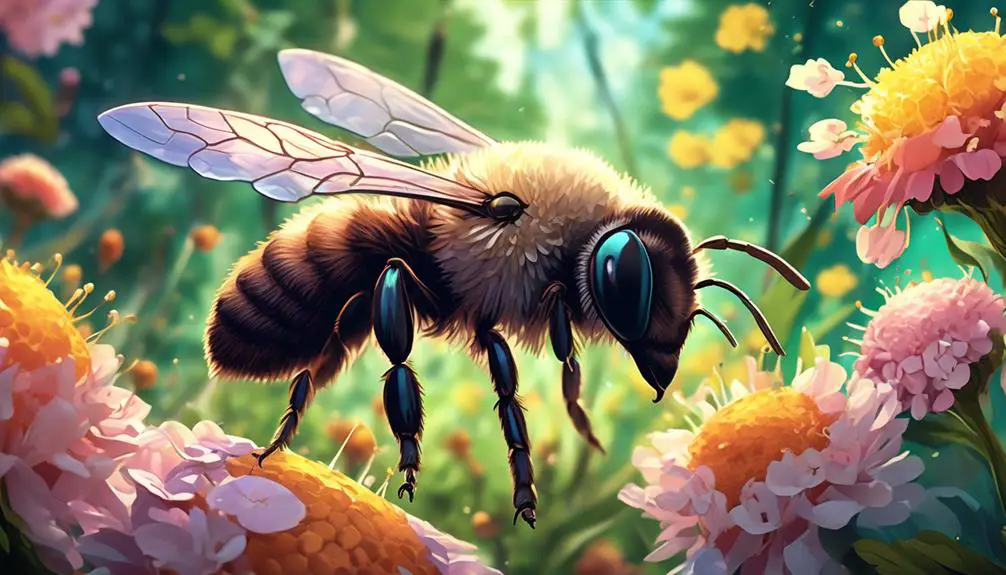
You might be surprised to learn just how crucial mason bees are to our ecosystem, particularly in terms of pollination. Unlike honey bees, which only pollinate about 5% of the flowers they visit, mason bees pollinate nearly 100% of the flowers they see. This means that they play a vital role in the propagation of many plants.
Mason bees are solitary creatures, meaning they don't live in colonies like honey bees. This solitary nature makes them less likely to sting and more focused on pollination. They're incredibly efficient, too. A single mason bee can do the work of 100 honey bees.
And it's not just about the flowers. When mason bees pollinate, they're also supporting the entire food chain. The plants they help propagate provide food for other insects, birds, and mammals. They're essentially one of nature's linchpins, holding the delicate balance of our ecosystem together.
Despite their small size, mason bees have a big impact. They're a clear example of why every creature, no matter how small, plays an important part in our world. So, while they may not make honey, their role in our ecosystem is sweet enough.
Conclusion
In conclusion, while you may love the thought of mason bees producing honey, it's not their gig. Their life cycle and biological differences from honey bees don't allow for honey production.
But don't diminish their value — they're busy pollinators, keeping our ecosystem vibrant. So, while they may not gift us with honey, mason bees do provide a vital service.
Embrace these tiny creatures for the significant role they play in our environment.

